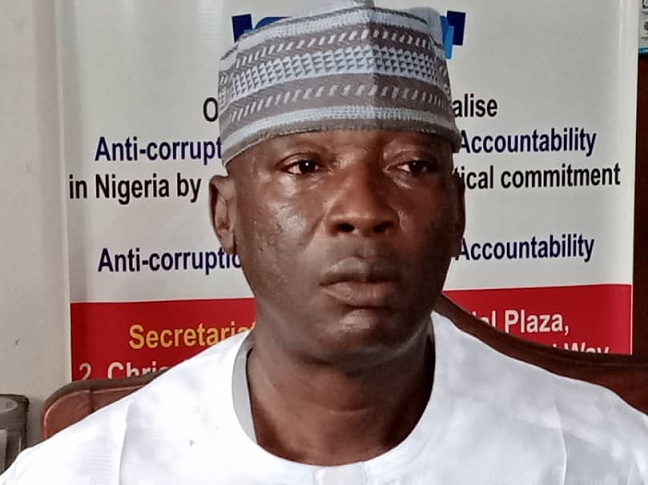As Nigerians await the much-anticipated arraignment of Senator Natasha Akpoti-Uduaghan on June 19, 2025, over alleged false accusations against prominent figures, it is important to assess, albeit briefly, the trajectory of the suspended lawmaker whose dramatic political maneuvers have attracted international attention and, arguably, brought embarrassment to both Kogi Central Senatorial District and Nigeria in general.
In 2016, during the early days of former Kogi State Governor Alhaji Yahaya Adoza Bello’s administration, Senator Natasha Akpoti-Uduaghan emerged as a vocal supporter of the New Direction Agenda. Numerous pictorial and documentary pieces of evidence confirm her strong alignment with the former Governor, then described her as second only to God. Armed with eloquence and oratorical flair, Natasha praised Yahaya Bello effusively until her political ambitions collided with the internal dynamics of the All Progressives Congress (APC), particularly her desire to clinch the Kogi Central Senatorial ticket.
In a dramatic political pivot, Natasha switched allegiance and brought the Social Democratic Party (SDP) into the fray as an opposition force against the APC, Governor Bello, and his loyalists. Backed by significant financial resources and a social media-savvy support group known as the Ovidi Family, she sought to capture the political imagination of the Kogi Central electorate. Her campaign, however, was riddled with allegations ranging from corruption and political persecution to calculated gender-based victimhood, all aimed at undermining the APC and its candidates, including the then-incumbent Senator Yakubu Oseni.
She would go on to break yet another record ahead of the 2023 general elections. Disillusioned by the SDP’s lack of structure and electoral traction, Natasha defected to the People’s Democratic Party (PDP), quickly asserting dominance with the strategic backing of her husband. In the process, she sidelined several seasoned PDP stalwarts such as Senator Salawu Ogembe, Hon. Momohjimoh Lawal (Kennedy), and two-term House of Representatives Member Hon. Abdulkarim Salihu. Her aggressive style and sweeping influence led to her eventual victory via a court ruling.
Yet, as the adage goes: “Luck may elevate you, but character defines how high you stay.” In the Senate, rather than pivoting to governance and constituency development, Senator Natasha appeared to favour theatrics. She resisted seat reallocation on grounds that her new position wouldn’t be camera-visible and accused the Senate leadership of targeting her due to a gas project allegedly initiated in Ajaokuta. What began as a personal grievance quickly escalated into explosive claims of sexual harassment against Senate President Godswill Akpabio, an allegation that captured global media attention and drew scrutiny to Nigeria’s legislative integrity.
Natasha’s true intentions have been laid bare, and those with discerning eyes can see them clearly. Forward-thinking constituents of Kogi Central, anticipating the current impasse, initiated a recall process to ensure representation and accountability. This effort wasn’t driven by personal vendetta against Natasha or support for Akpabio, but rather a desire to safeguard the community’s interests and access the benefits of democratic governance. Regrettably, Natasha resorted to manipulative tactics, leveraging superficial empowerment schemes to discredit the recall process and maintain her grip on power. Notably, she failed to replicate such gestures during the recent Sallah celebrations, unlike her colleagues who actively engaged with their constituents.
Notably, Senator Natasha Akpoti-Uduaghan has set a string of highly contentious precedents in Nigeria’s political landscape. She is the only female politician in the country’s recent history to publicly accuse a sitting governor of an assassination plot without facing any legal repercussions. Such a wrong allegation, made without formal charges or a judicial process, set a controversial tone for her political style. She also holds the distinction of being the first senator to openly defy a state governor’s security directive against large public gatherings. Her actions, taken in disregard of established protocols, proceeded without any official sanctions, highlighting a perceived breakdown in the enforcement of executive authority at the state level.
In another unprecedented move, Senator Natasha became the first female lawmaker in Nigeria to accuse the President of the Senate of sexual harassment, an explosive claim that, to date, has not been substantiated with credible evidence. This allegation not only attracted widespread media attention but also cast a shadow over the credibility of the National Assembly.
Additionally, despite being under suspension, she attended and represented Nigeria at a United Nations Inter-Parliamentary Union (IPU) event. This act, seen by many as a blatant disregard for legislative procedures and international protocol, further cements her reputation as a lawmaker who frequently challenges the boundaries of institutional norms.
Beyond the headlines and controversies, her record in office tells a different story. Critics argue that Natasha has failed to deliver on key campaign promises, such as reviving the moribund Ajaokuta Steel Company and advancing social justice in her constituency. Instead, her tenure has been marked by public drama and modest empowerment programmes, far from the transformative agenda she once preached.
While she may have “broken records,” the nature of those records invites deeper reflection on the quality of leadership and the future of Kogi Central in Nigeria’s democratic experiment.
Kogi Central must awaken from its complacency and critically evaluate the vacant seat in the Senate. The constituency is missing out on vital democratic dividends while blindly supporting Natasha, who appears to prioritize her self-interest above all.
– Shaibu Ajanaku wrote from Kogi state.




